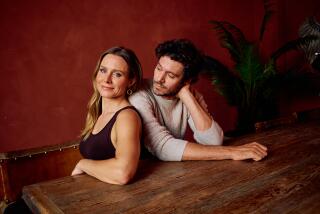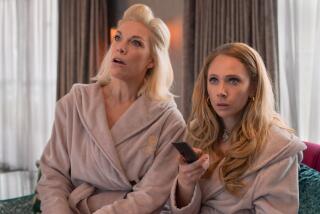‘Ted Lasso’s’ Brett Goldstein and Juno Temple: Why the Keeley-Roy romance works
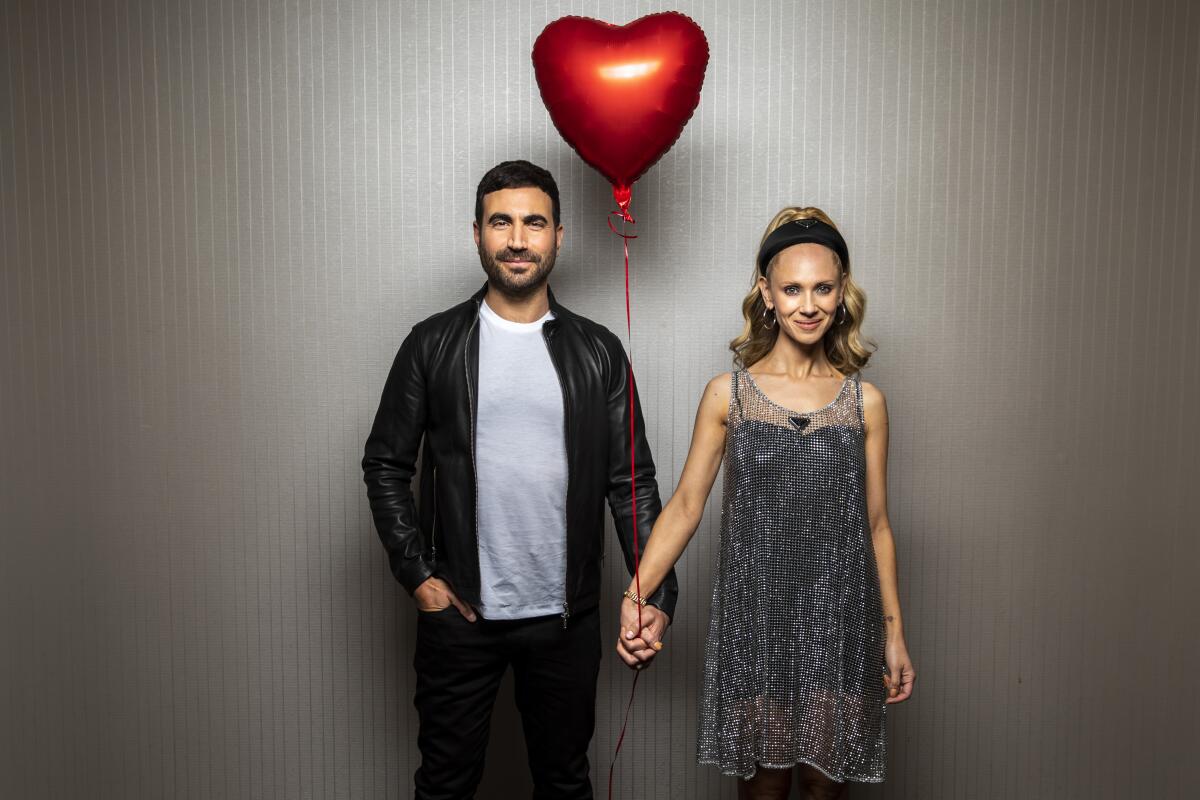
Aging footballer Roy Kent wears his anger like a shell, but crack it and he’s a dang teddy bear. Cheeky semi-celebrity Keeley Jones has a tenderness tempered with steel. Together, they are as irresistible to each other as they are to fans of “Ted Lasso.” The warm Apple TV + comedy, starring Jason Sudeikis as an American football coach hired to coach a soccer team in England, garnered 20 Emmy nominations, including supporting role nods for Brett Goldstein as Roy and Juno Temple as Keeley.
They are not their roles, of course, but on this day together — Temple is as effervescent as Keeley, while Goldstein is as thoughtful — and as given to swearing — as Roy. As they discuss their onscreen pairing, their own camaraderie is evident.
When did you know that you would be able to make this couple believable?
Juno Temple: Pretty instantly. For me, there’s a situation when you have to play a couple on camera, and you have to be in love with each other, and you have to create a sense of actually existing with that person in private places that nobody else sees. You need to choose one thing about that person that makes them the most delicious, intoxicating, perfect creation to you.
Brett Goldstein: Please ask her what that was.
Temple: No, I’ll never tell, because then you’ll have to grow old with me.
Goldstein: I’m sure I told you, I was actually very nervous about working with you, because you’re a proper f— actor. But you were very kind early on and said, “Whatever you need, this is a safe space, we can say anything to each other.”
Temple: I was very nervous about working with all of you, because you’re actual comedians, which I think is way scarier.
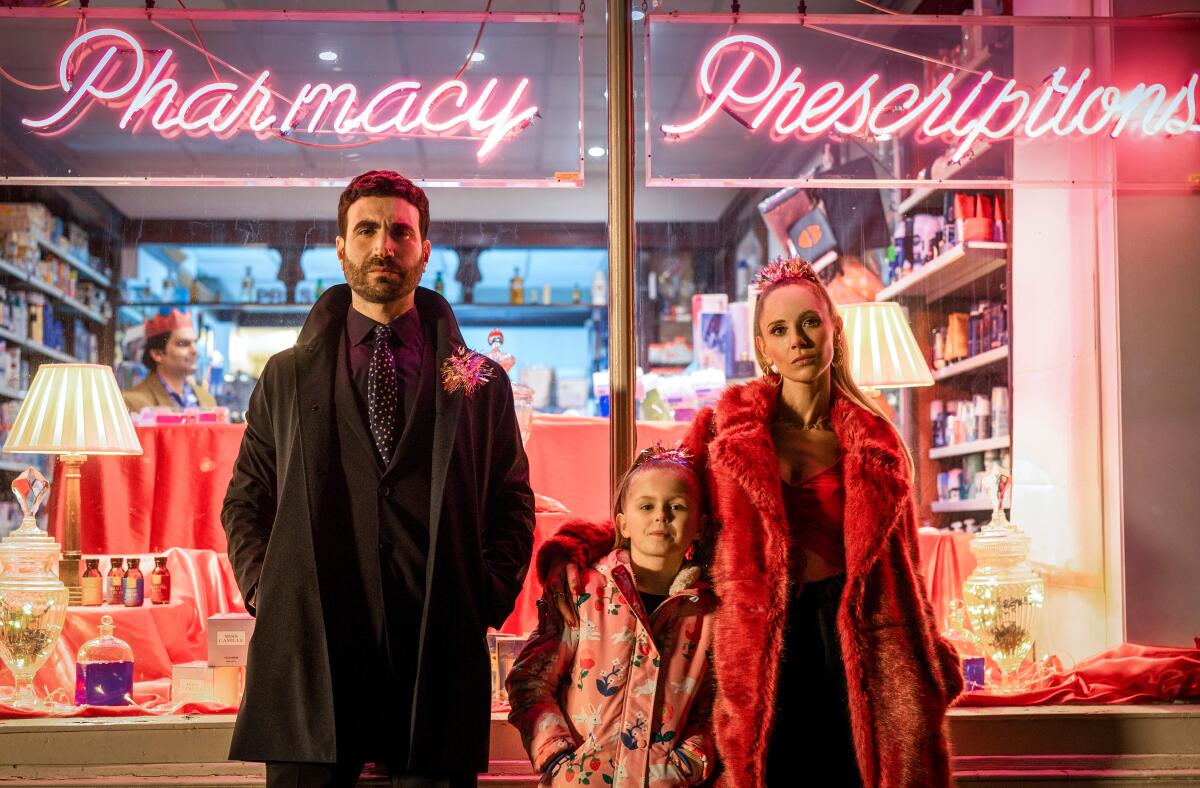
Brett, your nervousness with Juno would play well into Roy’s discomfort with Keeley at first, wouldn’t it?
Goldstein: Yeah. But also Juno is immediately disarming.
Temple: Why? Because I’m very honest?
Goldstein: Because you’re not a d—. You’re a very, very good actor, and they generally can be difficult.
What do you like about Keeley and Roy together? Why do they work?
Goldstein: Though they’re very different, they’ve both been in the same kind of relationships that are shallow and distrustful, and if they’re being honest, they’re both scared of being loved, and they have let in bad people.
Temple: She’s trying to figure out who she is when the model thing is no longer an option, so they’re both coming up to changes in their lives. At the same time, I don’t think they’ve ever allowed people to really love them, because they’re not necessarily sure they’re lovable, because they don’t know what it is to fully be known.
Goldstein: And Roy’s been in a very, very, very dark place for a while, because he knows he’s on his way out, and I don’t think he has a plan beyond the end of his career. And he’s wildly attracted to Keeley, but then at the gala in Episode 4, when he sort of says, “You made me feel like an idiot,” and she apologizes, it’s probably the first time that’s ever happened.
Temple: For both of them.
Goldstein: “This is a thing, that you’ve listened and responded and been honest and owned up to something?” That’s the beginning of the end for him; he’s a goner then.
Temple: You need someone to hold you accountable. And also Keeley didn’t think about that she had hurt Roy, because Roy’s a closed book.
Goldstein: Because he doesn’t show anyone he can be hurt.
Temple: Keeley knows in that moment, “I want that in my life. I want to be accountable.” That was a really important scene for me as an actress, as well as for Keeley. I think about it a lot in real life, how important accountability is. People screw up, it happens, but it’s what you do with that afterwards that makes you who you are.
Goldstein: It was very special to me as well. Occasionally you have those moments where you’re actually buzzing, you’re so into it.
Temple: Slowly you see their worlds start to merge, and what happens out of that is insane honesty, which was, what an amazing way to start a relationship.
And then there’s the scene in the locker room where he’s devastated and warning her to stay away, but she doesn’t.
Temple: If you’re going to give your heart to somebody, that’s a good example of the kind of person you want in that moment.
Goldstein: I will say this, doing a scene like that, you really want Juno Temple as your scene partner, because it’s a vulnerable scene, and you know she is going to have your back.
Temple: It’s been a really special relationship to create on camera, because I think it’s quite an inspirational one. It’s definitely made me think about relationships I’ve had in my past, and what I want from them, and what I present myself as in the world.
Goldstein: “Ted Lasso” has affected all of us — affected the cast, affected the crew, affected the writers. You can’t really make a show like this without being accountable, and looking at your own behavior. We’ve backed ourselves into a corner in that none of us can be d— now.
Temple: Or if we are, we have to own up to it.
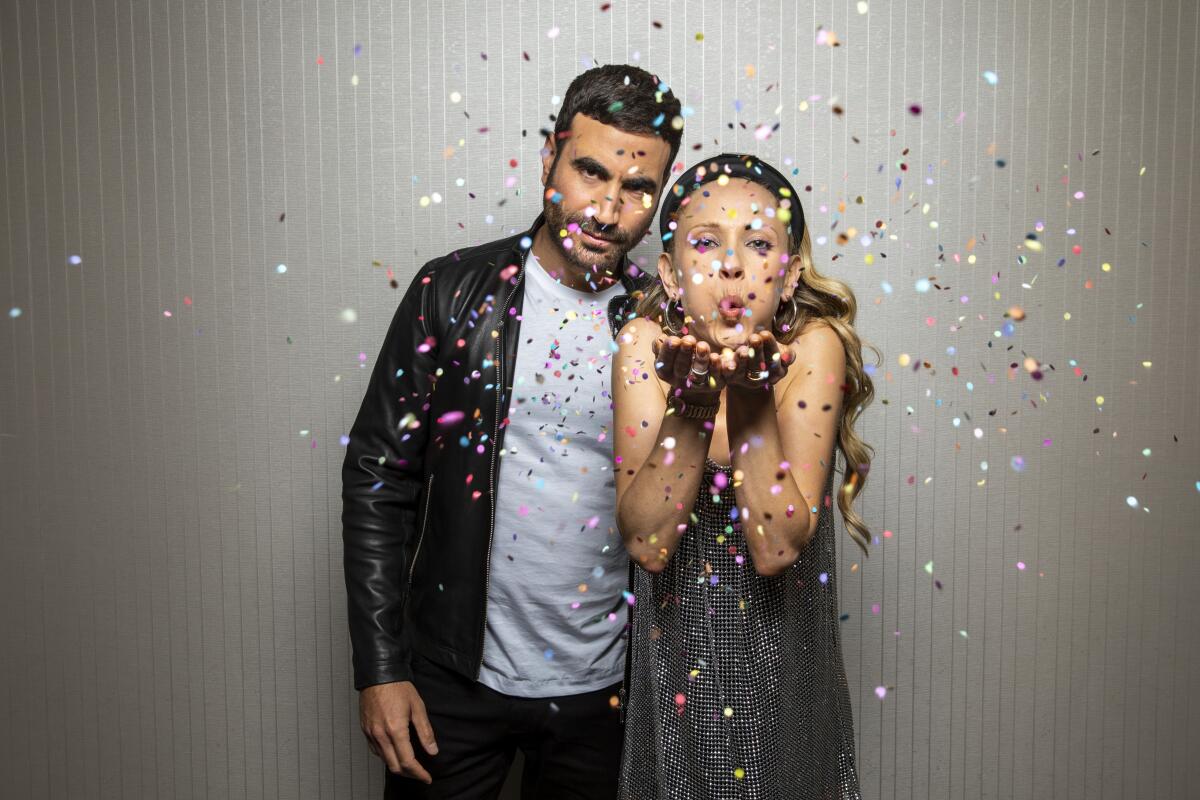
What effect has Roy had on you, Brett?
Goldstein: I have more of the discomfort of people not liking me; Roy doesn’t have that. That’s a great trait to have, and I maybe tried to take a bit more of that from him.
Brett, you’re also a writer on the show — when you all knew that you had Juno for the role, did you change the character?
Goldstein: Not in the story, but more how she spoke and how she was funny, because Juno was funnier than what we had written. We stole Juno.
Temple: It’s funny, because I’ve had a few friends reach out to me who watched the show and said, “Wow, that’s the most like you you’ve ever been in something.” I love that. She’s been so important in my life these past couple of years.
How?
Temple: Because I can be really cruel to myself. I find it difficult to be in my skin, often. I battle with a lot of self-worth stuff — I’m a woman in this industry. And you forget sometimes when you’re watching yourself on a big screen that your brain is just as important as your body. And then I get angry with myself for caring about that stuff, and then it becomes a vicious cycle, and I can get sad sometimes, and I battle with a lot of different things that I’m sure a lot of people can relate to. So getting to play Keeley, who is truly a person that brings joy to the people around her and has a confidence in the way she presents herself to the world, she has fun with herself in a way that I am so proud to have played, I hope that I get an ounce of that confidence from her. Because that’s where we differ. She’s really helped me out a lot.
Keeley and Ted are both healers, but Ted is also in need of healing himself. What about Keeley? She is perhaps the most mysterious of the characters, because we don’t know anything about what propels her, the way we do with just about everyone else.
Temple: This is true. The colors that you might have missed so far with her character, those light-refracted crystals, just need to be moved to a different position in the window; you’re going to see a lot of rainbows at some point, I’m sure.
Goldstein: I would say in the same way with Ted, you have a person who is mostly output and love, and usually it’s the hardest for those people to let love in.
More to Read
From the Oscars to the Emmys.
Get the Envelope newsletter for exclusive awards season coverage, behind-the-scenes stories from the Envelope podcast and columnist Glenn Whipp’s must-read analysis.
You may occasionally receive promotional content from the Los Angeles Times.
